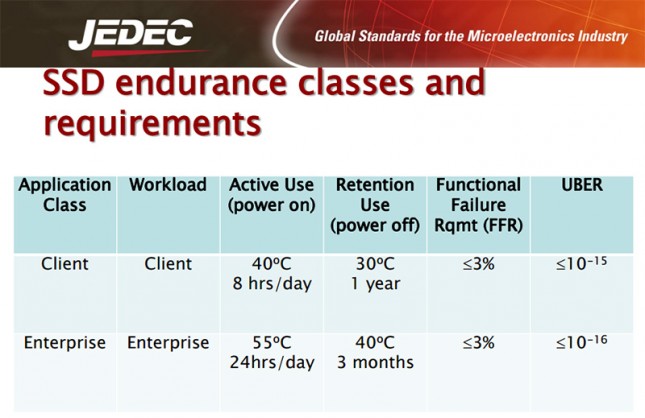SSD Data Retention Not Good When Unpowered
We’ve heard for years that SSDs might not be the ideal solution for long term storage of important data if you unplug it and store it in secure location like a safe. Despite the fact that SSDs are more reliable than a traditional hard drive since they contain no moving parts and can handle a wicked amount of g-forces they have problems holding onto data when left unplugged for long periods of time. Over the weekend the folks over at ZDNet must have been bored and wrote an article about how SSDs lose data when left without power for just a few days. The article sourced information from a 2011 presentation by Seagate Chairman Alvin Cox.
In the presentation from four years ago it was noted that both enterprise and consumer SSDs will lose data when they are stored for long periods of time without power after being removed from duty with data left on the drives. Note that in the presentation slide that they are storing the drives at high temperatures after the power is removed. The consumer client drive was stored at 30C (86F) and was able to retain data for a year before the failure rate became an issue. The enterprise drive was kept at stored at 40C (104F) and the drive data retention became sketchy in about three months. Keep in mind that this presentation was made in 2011, so the data could have been from 2010 and much has changed about SSDs over the past half decade.
The report also noted that the period of time data is retained on some SSDs is nearly cut in half for every 9F (or 5C) rise in temperature where its stored. Basically the key take home message here is that SSD data integrity could be compromised by storing them in an unpowered dormant state at high temperatures. We wouldn’t freak out and it looks like the article written over the weekend was written to be click bait using scare tactics. We always suggest backing up your critical data on a regular basis to a variety of different media types and locations to ensure the best chances for survivability.


